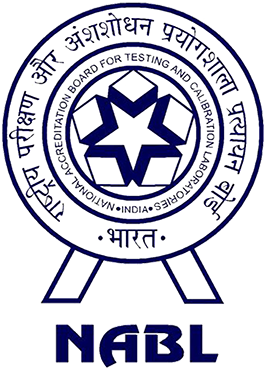Erythropoietin- EPO
An erythropoietin (EPO) test measures the level of erythropoietin in the blood. Erythropoietin is a hormone produced primarily by the kidneys and plays a crucial role in the production of red blood cells. Here are the key aspects of what an erythropoietin test measures and its clinical significance:
1. **Red Blood Cell Production**: EPO stimulates the bone marrow to produce red blood cells. The test helps in understanding how effectively the body is producing red blood cells.
2. **Diagnosis of Anemia**: Low levels of EPO can indicate anemia, particularly in chronic kidney disease, where the kidneys may not produce enough erythropoietin. Conversely, high levels of EPO might be seen in certain types of anemia, such as anemia due to iron deficiency or blood loss, where the body compensates by producing more EPO.
3. **Polycythemia**: High levels of EPO can indicate polycythemia, a condition where there is an overproduction of red blood cells. This can be primary (due to bone marrow disorders) or secondary (due to chronic hypoxia, tumors, or other conditions stimulating EPO production).
4. **Kidney Function**: Since EPO is primarily produced by the kidneys, the test can provide insights into kidney function. In patients with chronic kidney disease, EPO levels are often monitored to determine the need for synthetic erythropoietin therapy.
5. **Bone Marrow Disorders**: EPO levels can help diagnose and differentiate between various bone marrow disorders and conditions affecting red blood cell production.
In summary, an erythropoietin test provides valuable information about red blood cell production, helping diagnose anemia, polycythemia, kidney function issues, and bone marrow disorders.
एरिथ्रोपॉइटिन (EPO) परीक्षण रक्त में एरिथ्रोपॉइटिन के स्तर को मापता है। एरिथ्रोपॉइटिन एक हार्मोन है जो मुख्य रूप से गुर्दों द्वारा निर्मित होता है और लाल रक्त कोशिकाओं के उत्पादन में महत्वपूर्ण भूमिका निभाता है। यहाँ EPO परीक्षण के प्रमुख पहलू और इसके नैदानिक महत्व को बताया गया है:
1. **लाल रक्त कोशिका उत्पादन**: EPO हड्डियों के मज्जा को लाल रक्त कोशिकाएँ बनाने के लिए प्रेरित करता है। यह परीक्षण यह समझने में मदद करता है कि शरीर कितनी प्रभावी ढंग से लाल रक्त कोशिकाएँ उत्पन्न कर रहा है।
2. **एनीमिया का निदान**: EPO के निम्न स्तर एनीमिया का संकेत हो सकते हैं, विशेष रूप से क्रोनिक किडनी रोग में, जहां गुर्दे पर्याप्त एरिथ्रोपॉइटिन का उत्पादन नहीं कर पाते। इसके विपरीत, EPO के उच्च स्तर कुछ प्रकार की एनीमिया में देखे जा सकते हैं, जैसे कि आयरन की कमी या रक्त हानि के कारण, जहां शरीर अधिक EPO का उत्पादन करता है।
3. **पॉलीसाइटेमिया**: EPO के उच्च स्तर पॉलीसाइटेमिया का संकेत दे सकते हैं, जो एक स्थिति है जहां लाल रक्त कोशिकाओं का अधिक उत्पादन होता है। यह प्राथमिक (हड्डियों के मज्जा के विकारों के कारण) या द्वितीयक (दीर्घकालिक हाइपोक्सिया, ट्यूमर, या अन्य स्थितियों के कारण EPO उत्पादन को उत्तेजित करना) हो सकता है।
4. **गुर्दे का कार्य**: चूंकि EPO मुख्य रूप से गुर्दों द्वारा निर्मित होता है, यह परीक्षण गुर्दे की कार्यक्षमता पर अंतर्दृष्टि प्रदान कर सकता है। क्रोनिक किडनी रोग वाले रोगियों में, EPO स्तरों की निगरानी अक्सर सिंथेटिक एरिथ्रोपॉइटिन थैरेपी की आवश्यकता को निर्धारित करने के लिए की जाती है।
5. **हड्डी के मज्जा के विकार**: EPO स्तर विभिन्न हड्डी के मज्जा के विकारों और लाल रक्त कोशिका उत्पादन को प्रभावित करने वाली स्थितियों का निदान और अंतर करने में मदद कर सकते हैं।
संक्षेप में, EPO परीक्षण लाल रक्त कोशिका उत्पादन के बारे में मूल्यवान जानकारी प्रदान करता है, जिससे एनीमिया, पॉलीसाइटेमिया, गुर्दे की कार्यक्षमता की समस्याओं और हड्डी के मज्जा के विकारों का निदान किया जा सकता है।
We provide blood tests in Noida, Gurgaon,
Faridabad,
Delhi,
Indirapuram, Ghaziabad, Greater Noida, and Greater Noida Extension(west).
















